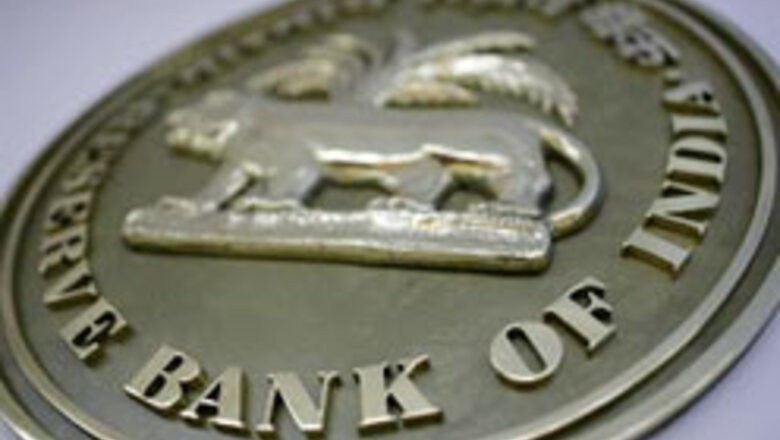
views
New Delhi: The Reserve Bank of India has raised Cash Reserve Ratio to 7 per cent—sucking out liquidity from the system, however keeping the interest rates unchanged.
Clearly, the immediate effect of the RBI decision is—a fall in the deposit rates by banks while the lending rates remaining unchanged.
The banks will no longer be in a position to offer short-term loans at discounted rates as part of the liquidity has being withdrawn by the RBI.
Thus if you have a housing loan with a floating interest rate, you can breathe easy, as rates are likely to remain steady in the near future. However, prospective loan seekers don't have much to cheer about, because interest rates are unlikely to fall anytime soon.
Three PSU banks—Canara Bank, Bank of Baroda and Bank of India announced a reduction in the deposit rates on their special 1-year deposit schemes by 50 basis points to 9 per cent.
"Banks would not increase lending rates, especially in retail loans as recent quarters have shown rising interest rates affecting the consumers' repayment capacity with corresponding increase in delinquencies,” a market analyst was quoted by moneycontrol.com.
The increase in CRR will drain Rs 16,000 crore from the system. This is the fourth identical increase in CRR since December 2006 and it absorbs only a part of the excess liquidity.
“The actions taken are liquidity management issues and not interest rate signals. Interest rates (lending rates) will remain unchanged,” said KC Chakrabarty, chairman of Punjab National Bank, the country’s fourth-largest bank.
Addressing a press conference, RBI Governor YV Reddy said, “There is still a fear of high inflation.” This despite the fact that inflation was at 4.41 per cent last week, well below the central bank’s target for this year of 5 per cent, after it crossed 6 per cent in January.
The RBI move is good news for investors in stock market. Barring a few sectors like banking, the market is likely to remain buoyant on the back of strong foreign fund inflows.
The equity markets jumped 290 points (see adjoining story) and bond yields went up after the policy was announced as bond prices fell on expectation of lower demand. Bond prices and yields have an inverse relationship.
Equity investors also have reasons to rejoice. Stock market players believe the RBI move is likely to boost foreign fund inflows into the bourses. "The overall stance of RBI’s monetary policy continues to emphasise price stability and low inflation. At the same time, it is ensuring a proper environment to maintain the growth momentum," said a mutual fund manager.
Market players also said the policy review may not be such negative news for banking and real estate.
With inputs from agencies




















Comments
0 comment